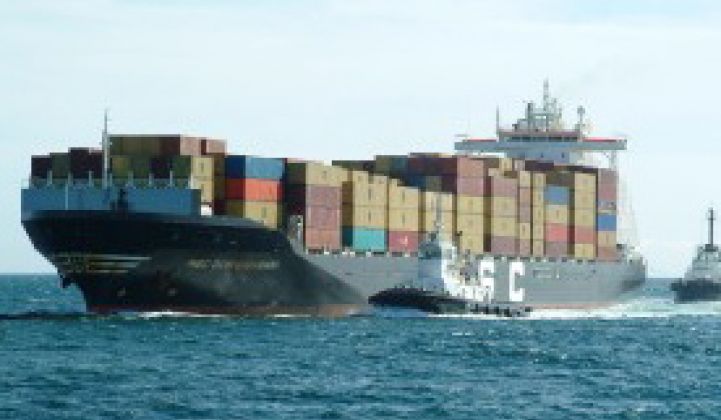The switch from alternating current to direct current power delivery was a mega trend in data centers in 2011, with companies such as Facebook and Google moving towards ultra-efficient DC data centers.
The trend is continuing in 2012, but not just for servers. ABB recently announced an order for the first DC power grid aboard a ship. The new power system allows for the ship’s propulsion system to run at a variable speed and maximize efficiency.
“No one had done this before because there are a lot of rules and requirements to fulfill,” said Sindre Satre, SVP of Marine and Cranes in ABB's process automation division, “and people are prone to continue to do the same as before.”
In the traditional design of propulsion systems, the DC power is converted through an AC switchboard and then fed to the thrusters and propulsion drives. In the new onboard DC grid, ABB removes the switchboard completely and routes the power through a single DC circuit, which can cut the power use by about 20 percent. Like DC data centers, some of the increased efficiency comes from fewer conversions, which means less lost power.
The challenge is to ensure that the equipment is protected and the system is stable if the power is not converted from DC to AC, said Satre. The solution didn’t require new equipment, however, just a redesign on how traditional components are put together.
The first order will be for a new offshore platform support vessel, but the DC microgrid could be installed as a retrofit on any ship with low-voltage onboard circuits, including tugboats, ferries, offshore support vessels and yachts.
ABB announced the concept for a DC grid for ships in 2011, but this is the first order, which will be delivered in the first quarter of 2013. Although ABB could retrofit ships with this solution, the focus will be on new orders to bring the offering to market.
Because the components are essentially the same as what are on ships today, Satre said the cost was comparable to systems available today, though the system's improved efficiency makes it a much better investment.
The savings might also go far beyond 20 percent. If ship owners want to incorporate alternative energy sources, such as fuel cells, solar or storage like battery packs, they can plug directly into the DC grid and achieve even greater energy efficiency.
There are also advantages beyond energy. The grid is up to 30 percent smaller and lighter, which means more space for cargo or passengers.
ABB, like its competitors, is supporting the DC renaissance in various industries. It has a stake in Validus DC Systems, which makes power equipment for data centers. ABB is also one of the premiere manufacturers of high-voltage DC power lines. There are more than 145 HVDC projects pending or underway across the world, and the Swiss-Swedish power automation giant has nearly half of those orders. Making some ships more efficient is part of a larger trend in cleaning up the marine industry, from the growth of shore power for cruise ships to increased standards for some of the largest ports.
ABB is expecting that its new DC grid for ships will become a popular standby among its offerings.
“We see this as a breakthrough,” said Satre. “We have very high interest from ship owners.”
_360_260_80.jpg)



